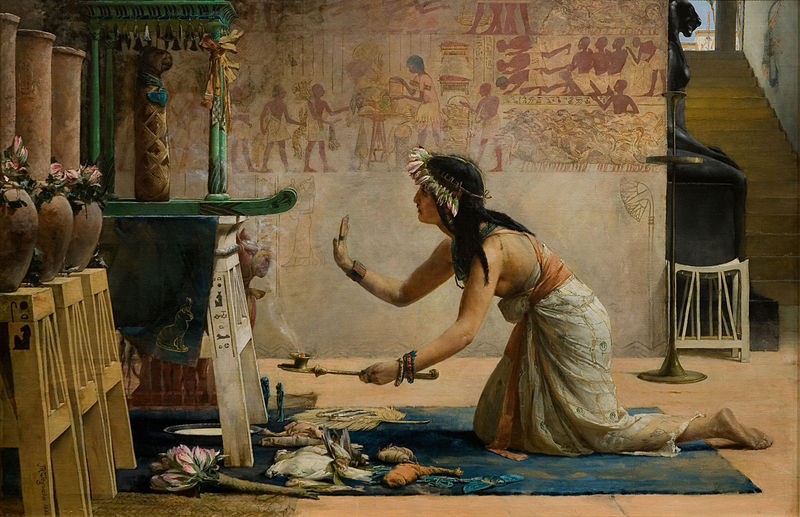Contemporary magic is understood as a supernatural means of transforming our reality to be more in accord with our individual wants and needs. This can be in the realization or manifestation of an ideal situation, or in avoiding something we hope not to experience. Magical means can, and often do, include techniques of divination, ceremonial magic, manifestation, visualization, and spiritual transformation. Yet in the ancient world, this was not the case. Magic was considered distinct from divination and from spiritual transformation. One of the reasons magic is confusing to modern people is that we have ingrained a hard line between science and the spiritual in our societal systems and individual consciousness. In the ancient world there was no such hard distinction, and therefore in the Graeco-Roman world the study of things both physical and metaphysical pertained to what was called scientia, or ‘knowledge.’
It was between the first to the ninth centuries CE, a period of cultural synthesis between the Greek, Roman, and Egyptian cultures that we find the rich tapestry of Hellenism. From the Hellenistic world, whose epicenter situated on the Mediterranean was the Graeco-Egyptian port city of Alexandria, we received a rich and profound cache of magical and religious traditions. These included but were not limited to the philosophies of Hermeticism and Neoplatonism, the spiritual techniques of theurgy, the initiatory system of Mithraism, and the vast array of magical techniques collected in what is now known as the Greek Magical Papyri. From this period we also received much of the Gnostic Christian literature. It was truly a golden age of the metaphysical.
...
Subscribe to the New PRS Journal to read on...
It was between the first to the ninth centuries CE, a period of cultural synthesis between the Greek, Roman, and Egyptian cultures that we find the rich tapestry of Hellenism. From the Hellenistic world, whose epicenter situated on the Mediterranean was the Graeco-Egyptian port city of Alexandria, we received a rich and profound cache of magical and religious traditions. These included but were not limited to the philosophies of Hermeticism and Neoplatonism, the spiritual techniques of theurgy, the initiatory system of Mithraism, and the vast array of magical techniques collected in what is now known as the Greek Magical Papyri. From this period we also received much of the Gnostic Christian literature. It was truly a golden age of the metaphysical.
...
Subscribe to the New PRS Journal to read on...
Nothing comes from nothing. Manly Hall’s vision for the All-Seeing Eye was entirely supported by contributions from its readers who paid for their subscription with gifts made according to their means. Manly Hall wrote,
“This magazine is published and distributed privately to those who make possible with their financial support its publication. The magazine cannot be bought and has no fixed value. Like all of the ancient teachings which it seeks to promulgate, it has no comparative value, but the students must support it for its own intrinsic merit.”



